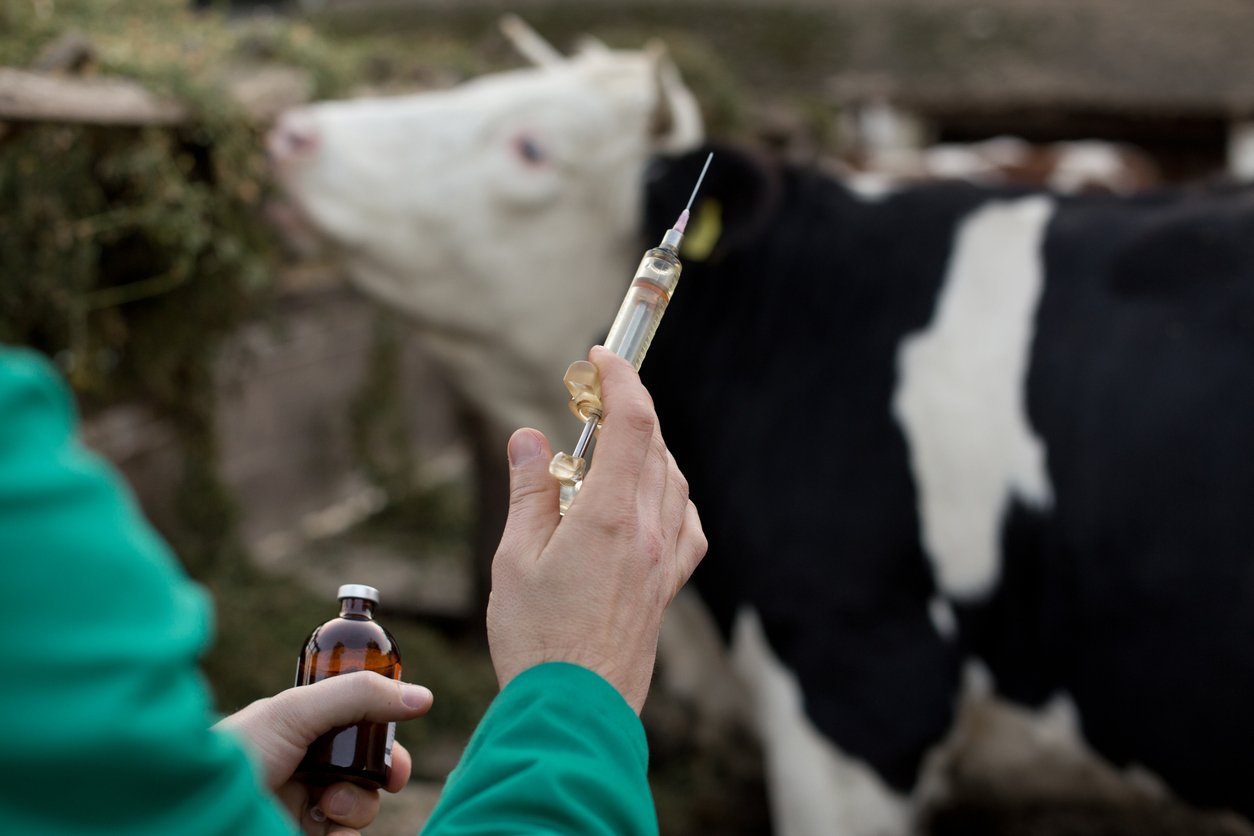Climate change is a global challenge that requires decisive action across all sectors, including agriculture. While agriculture is one of the sectors most affected by climate change, it also plays a significant role in mitigating these impacts. Within this context, livestock vaccination emerges as an essential practice both for animal health and as a direct strategy for climate action.
Therefore, the benefits of livestock vaccination are more extensive than disease prevention, playing a fundamental role in protecting the environment.
Prefer to listen to this article? Click the play button below and enjoy our podcast!
The importance of livestock vaccination in sustainable agriculture
Vaccines have a key role in protecting animal and public health, reducing mortality, improving production, and facilitating a more rational use of antibiotics. It is important to highlight what an effective vaccine needs to be highly “antigenic”; it must strongly stimulate the immune system to respond rapidly in the correct way. In this article we will explore the various beneficial consequences of vaccination:
- Animal Health: Vaccination plays a key role in promoting animal health, vaccination plays a key role in promoting animal health and welfare. It is important to vaccinate because infectious diseases, in addition to being a threat to animal welfare, also have consequences for agricultural productivity; for example, disease outbreaks lead to substantial economic losses for farmers and threaten food security. Healthy livestock are more productive, which results in higher yields of meat, milk and other animal products.
Vaccination also helps address the threat of antimicrobial resistance, which poses a major threat to human health across the world. - Reducing methane emissions: vaccinating livestock can significantly reduce methane emissions, a greenhouse gas produced during ruminant digestion. Therefore, if animals are vaccinated from the outset, there will be fewer diseases and healthy animals emit less methane. Therefore, by promoting healthier digestive systems in vaccinated cattle, producers can mitigate environmental impact while aligning with sustainability goals. In other words, diseases reduce the productivity of a farm; This occurs because cattle grow at a slower rate and cannot reach desirable weights or cannot reproduce. Diseases can drastically increase the mortality rate of animals. It should be noted that producers need to use more resources to raise more animals, in case of disease and this will lead to the release of more greenhouse gas emissions.
- Preserve biodiversity: Diseases have very significant effects on biodiversity, especially if they spread to wildlife populations. This disease transmission leads to population declines and disrupts ecosystem dynamics. Therefore, vaccinating livestock helps prevent the spread of diseases to wild animals, preserving biodiversity.

- Resource efficiency: Disease outbreaks often require the use of resources such as water, energy and land to manage and contain the spread. Sick animals require more feed and more medicine, which puts an even greater strain on resources. By preventing diseases through vaccination, producers reduce the need for resources by promoting more sustainable agricultural practices. This efficiency not only benefits the environment, but also increases the economic viability of livestock operations.
- Resilience to climate change: Vaccinating animals also plays a role in building resilience to climate change. Healthy animals are better able to withstand extreme weather conditions such as heat waves or prolonged droughts. Furthermore, adequate animal health contributes to maintaining the productivity and stability of livestock operations even in the event of adverse weather events.
- Reduced deforestation: Promoting livestock health through vaccination can reduce the herd mortality rate, thereby decreasing pressure on forested areas to expand pastures. This contributes to the conservation of forest ecosystems, essential for mitigating climate change.

Conclusion
Vaccinating livestock is more than just a disease prevention measure. It is a sustainable agricultural practice with significant environmental benefits. By promoting animal health, reducing methane emissions, preserving biodiversity, improving resource efficiency, increasing resilience to climate change and reducing deforestation, vaccination contributes to the global goal of sustainable agriculture.
Animal disease is associated with significant increases in livestock greenhouse gas (GHG) emissions and land use.
As global challenges such as climate change and biodiversity loss continue to increase, the adoption of practices such as livestock vaccination becomes increasingly vital. By integrating sustainable agricultural practices into livestock management strategies, producers can safeguard the environment and ensure the long-term viability of their operations.
Vaccinating livestock against common diseases is a form of direct climate action, benefiting the animals, the people and the planet
References
“Livestock Vaccines: Global Ripple Effect on Animals, Human Health and Sustainability,” Explore Animal Health. Accessed: Mar. 04, 2024. [Online]. Available: https://exploreanimalhealth.org/livestock-vaccines-global-ripple-effect-on-animals-human-health-and-sustainability/
J. Capper and D. Barret, “Vaccinating livestock against common diseases is a form of direct climate action.” Accessed: Mar. 04, 2024. [Online]. Available: https://theconversation.com/vaccinating-livestock-against-common-diseases-is-a-form-of-direct-climate-action-214514
K. A. Schat, “Vaccines and Vaccination Practices: Key to Sustainable Animal Production,” in Encyclopedia of Agriculture and Food Systems, N. K. Van Alfen, Ed., Oxford: Academic Press, 2014, pp. 315–332. doi: https://doi.org/10.1016/B978-0-444-52512-3.00189-3.
V. Baca-González, P. Asensio-Calavia, S. González-Acosta, J. M. de la Lastra, and A. de la Nuez, “Are Vaccines the Solution for Methane Emissions from Ruminants? A Systematic Review,” Vaccines (Basel), vol. 8, no. 3, 2020, doi: 10.3390/vaccines8030460.
About the author
Ana Vanessa Dias Sousa (Researcher FeedInov CoLAB)
With a degree in Veterinary Sciences from the University of Trás-os-Montes and Alto Douro, she worked for five years as a field veterinarian and in a pig and cattle feed factory. She worked in the pharmaceutical industry as a sales manager and technical support for pigs, cattle, rabbits and poultry in mainland Portugal and the Azores. She is currently at Feedinov Colab as a Researcher in the One Health Department.
Explore author’s articles


Leave your comments here